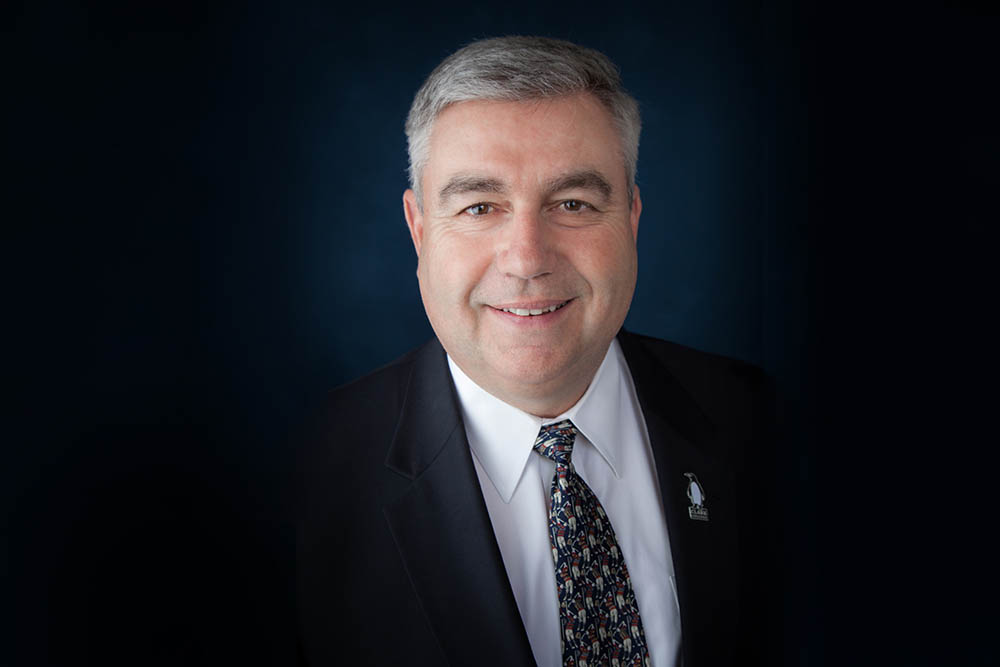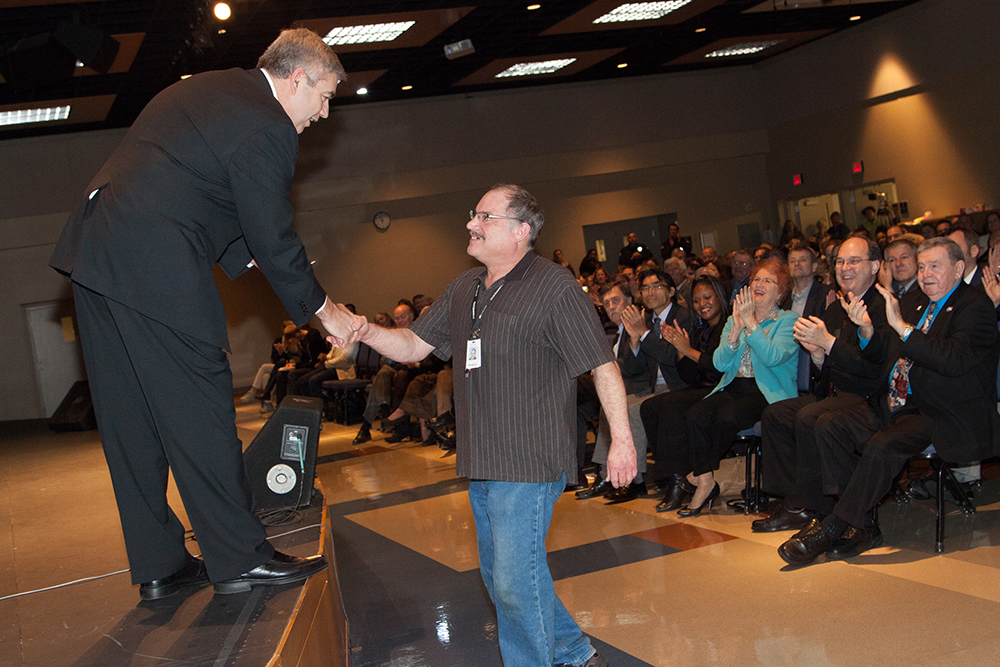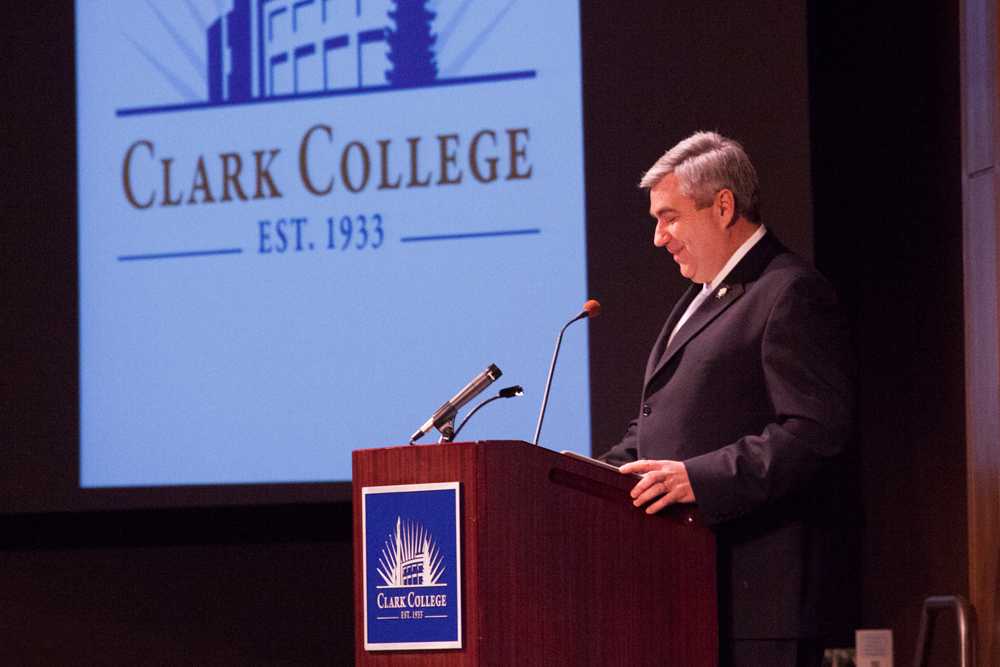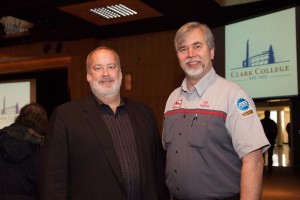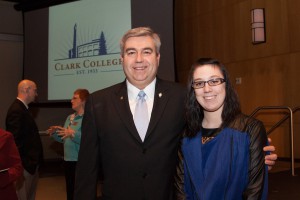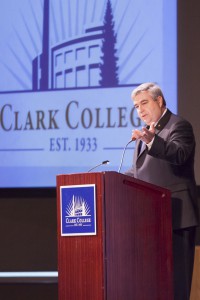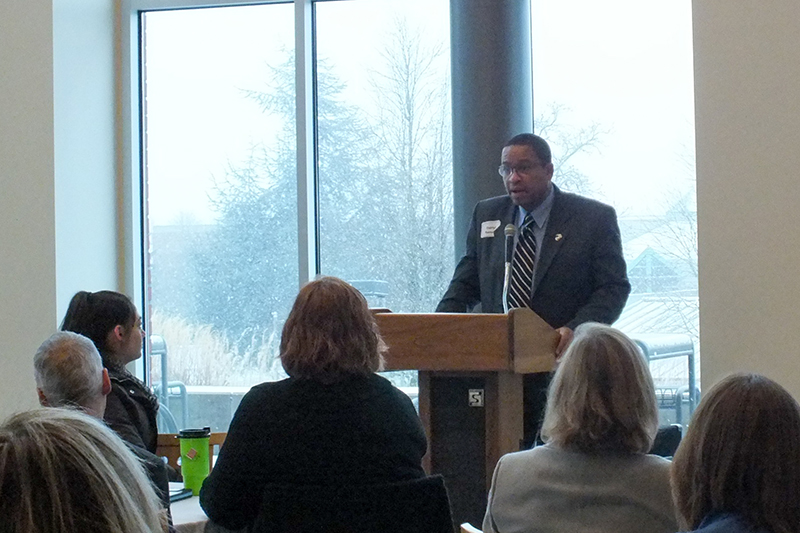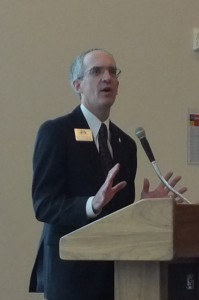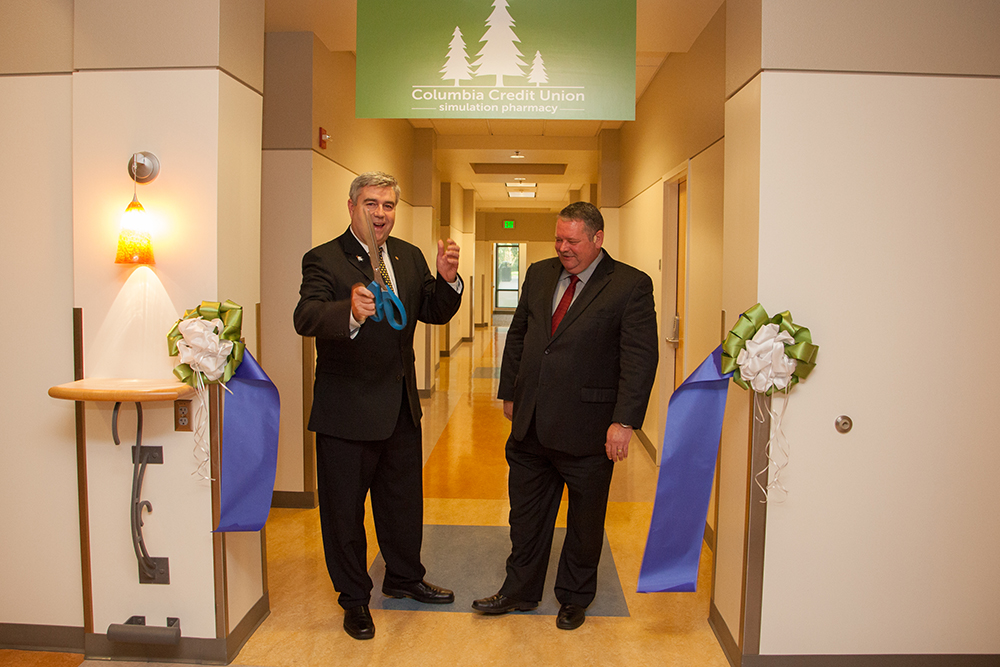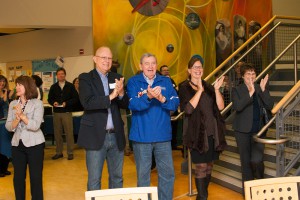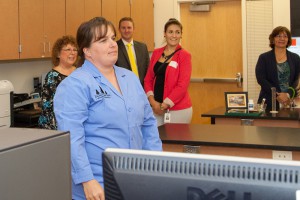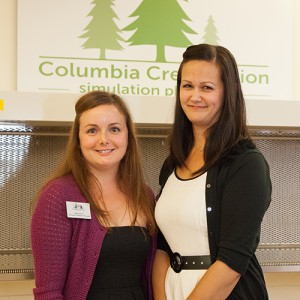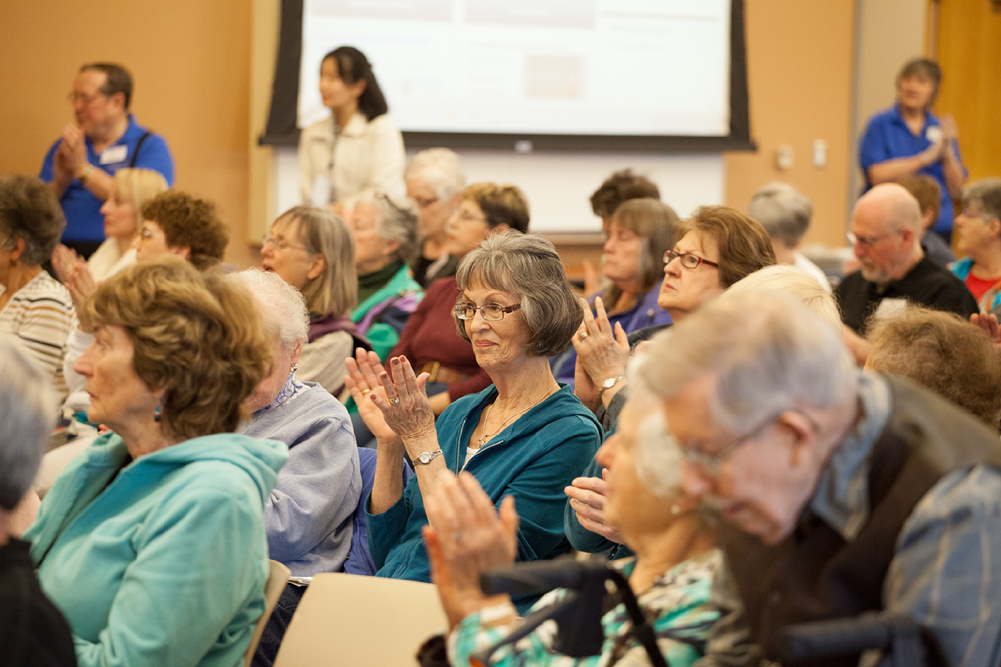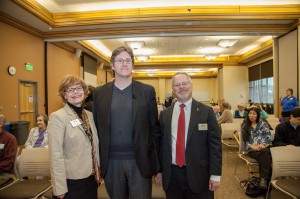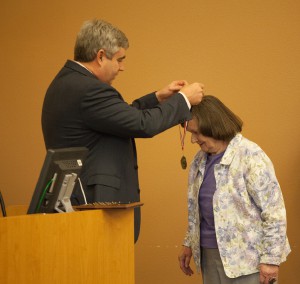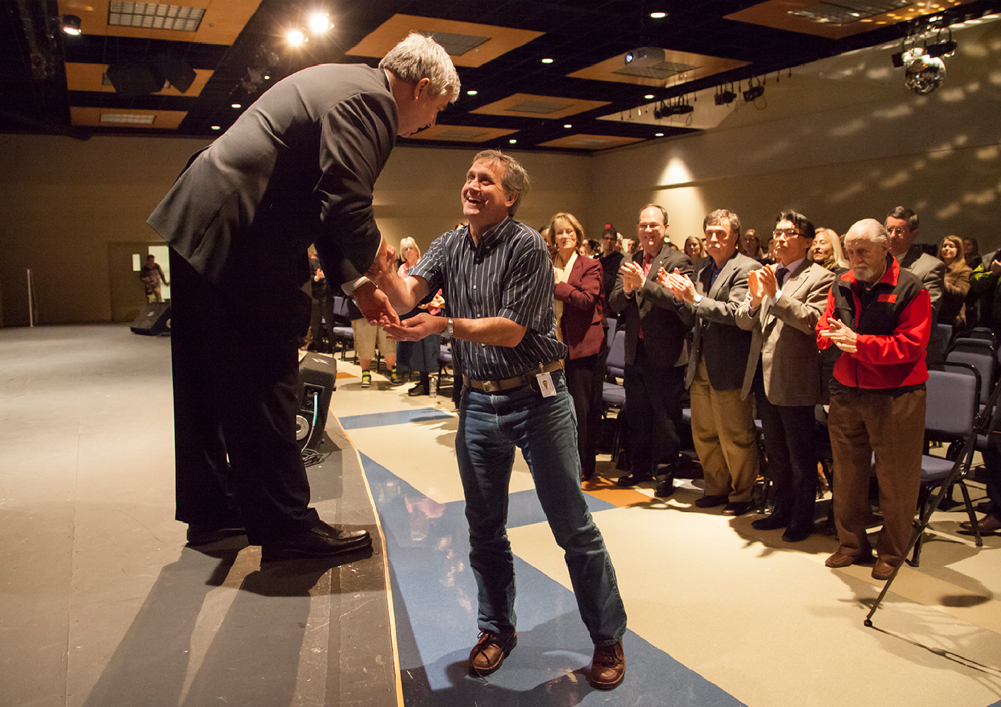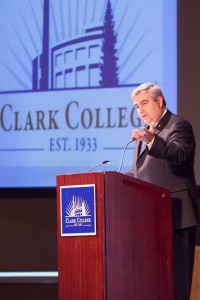Knight earns First Citizen Award
Clark College President Robert K. Knight has been named Clark County’s 2016 First Citizen, an award recognizing a Clark County resident who has modeled exemplary citizenship through their actions and service to the community. The award, which was announced in July, will be presented to Knight at a reception on November 2.
“I am honored by this prestigious recognition from the people I feel lucky to have called friends and neighbors for nearly two decades,” said Knight upon learning of the award. “Knowing that I am now counted among such amazing contributors to our community inspires me to continue serving that community in any way I can.”
The nomination focused heavily on Knight’s career at Clark College, where he is said to have “brought stability to a position he did not seek.” Knight, who originally joined the college as vice president of Administrative Services in 2004 and was named acting president in 2006, has overseen several major achievements at the college, including: construction of both Clark College at Columbia Tech Center and a new state-of-the-art, 70,000 square-foot building devoted to Science, Technology, Engineering and Math; the opening of the college’s Veterans Resource Center; and one of the largest enrollment spurts of any community college in Washington State. Last year, Clark was listed among the nation’s 150 best community colleges by the Aspen Institute. Much of this success is the result of Knight’s leadership, which is defined by his ability to listen intently, build relationships, support others and foster collaboration.
Letters of support also noted Knight’s giving of time and resources, off campus and outside of work. For years, Knight volunteered 30-to-40 hours each month in addition to overseeing the college. He was a leadership force behind the City of Vancouver’s 150th anniversary celebration and was important in bringing the Vietnam Traveling Wall to Vancouver. His involvement was instrumental in bringing prominent speakers to the region for the George C. Marshall Lecture Series, which included news anchor Tom Brokaw and former Secretary of State Madeleine Albright. In 2000, he helped Vancouver become one of only six cities in the nation selected to host a regional commemoration for the 60th anniversary of the end of World War II, which drew a crowd of 3,000 to the Vancouver National Historic Reserve.
Described as “one of the most active community volunteers in our region” by former Vancouver Mayor Royce Pollard, Knight has given his time and talents to organizations including the local chapter of the American Red Cross, Boys and Girls Clubs of Southwest Washington, the Columbia River Economic Development Council, Fort Vancouver National Trust, Greater Portland, Washington State University Vancouver and Workforce Southwest Washington.
In truth, though, Knight’s service began long before he landed in Clark County and reaches far beyond this region. For 21 years, he served with the U.S. Army in various ranks and across two continents. Numerous letters of support cited his military career as an example of his leadership, especially during his role as commander of the Vancouver Barracks when the base was targeted for closure. Knight convened community members in a thoughtful, open process that Vesta Hospitality CEO Rick Takach characterizes as being “critical to the jewel that is the Fort Vancouver National Historic Site.”
In all, each of the 29 letters of support—seven of which came from former First Citizens—demonstrate how Knight has shown effectiveness in leadership roles, raised standards and expectations, strengthened community identity and civic pride.
“In everything he does and every role he performs, Bob always puts service over self, mission over personal interest,” wrote former U.S. Representative Brian Baird. “Without question, Vancouver, Clark County, Southwest Washington and indeed our nation are better places because of Bob Knight.”
About the First Citizen Award
Recipients of the First Citizen Award, presented since 1939, are selected by a volunteer committee of community leaders and past award recipients. Recipients are chosen for their accomplishments and contributions to the community in a number of areas, including effectiveness in leadership roles, raising community standards and expectations, strengthening community identity and civic pride, and exemplary giving of time, self and resources. For a full listing of criteria and past recipients, please visit www.cfsww.org/our-community/first-citizen.
About the First Citizen Awards Event
Knight will receive the First Citizen Award during a community event scheduled for Wednesday, November 2 at Warehouse ‘23. The event will begin at 4 p.m., with the formal awards program at 5 p.m. Regents Bank is the presenting sponsor of the First Citizen Award reception. Biggs Insurance and PeaceHealth are supporting sponsors, and the event is organized in partnership with The Columbian and the Community Foundation for Southwest Washington. Tickets for the event are $35 and can be purchased at the door or in advance by visiting www.columbian.com/firstcitizen.
